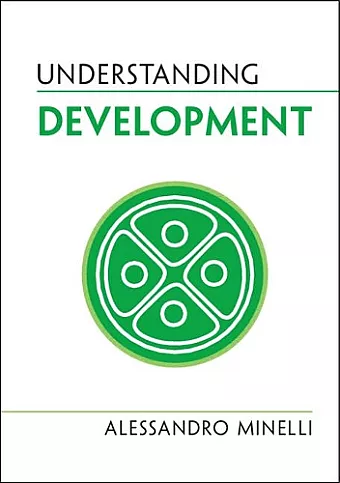Understanding Development
Format:Hardback
Publisher:Cambridge University Press
Published:20th May '21
Currently unavailable, and unfortunately no date known when it will be back
This hardback is available in another edition too:
- Paperback£11.99(9781108799232)

Using familiar examples and clear arguments, this volume offers fresh alternatives to widespread misconceptions about biological development.
Using familiar examples and easy-to-follow arguments, this concise book offers fresh alternatives to a number of widespread misconceptions about development. It will appeal to anyone interested in novel views and ideas in biology, including biologists, science educators, philosophers, students and general readers.Developmental biology is seemingly well understood, with development widely accepted as being a series of programmed changes through which an egg turns into an adult organism, or a seed matures into a plant. However, the picture is much more complex than that: is it all genetically controlled or does environment have an influence? Is the final adult stage the target of development and everything else just a build-up to that point? Are developmental strategies the same in plants as in animals? How do we consider development in single-celled organisms? In this concise, engaging volume, Alessandro Minelli, a leading developmental biologist, addresses these key questions. Using familiar examples and easy-to-follow arguments, he offers fresh alternatives to a number of preconceptions and stereotypes, awakening the reader to the disparity of developmental phenomena across all main branches of the tree of life.
'Developmental biology has been described as the process by which a fertilized egg is transformed into a multicellular organism. But is it? In this thoughtful and erudite book, Alessandro Minelli forces us to step back and reconsider the subject. Using an astonishing range of examples, from pythons to lichens and from sponges to ciliates, Minelli challenges a series of generalizations and preconceptions. We see how development is not only the process of building adults, why development does not have end-points, how development need not start with a fertilized egg, why we must be careful with the concept of developmental genes, and much more. After reading this book, you might not think about developmental biology in the same way again.' Peter Holland, University of Oxford, UK
'This is the finest book on the principles underpinning biological development that I have read in a long time. It is succinct, thoughtful and full of examples, offering wise reflection on the diversity of developmental phenomena across the whole tree of life. Understanding Development is especially notable for its organization into 48 sections comprising 8 chapters. Each section subtitle states a key lesson to be learned through brief historical and theoretical expositions, well-chosen examples, and stories of odd-ball and familiar life forms. Every lesson overturns some conventional wisdom or common knowledge that cannot stand up to the wondrous diversity of life on Earth. Minelli's broad, deep knowledge of the field is expressed with an engaging contrarian spirit that serves his larger goal: to prompt a reassessment of the state of contemporary understanding of development in a way accessible to novice and expert alike.' James Griesemer, University of California, Davis, USA
'Developmental biology is a highly dynamic area of the life sciences, and it also lacks a unifying theoretical framework and must rely on general principles derived from a small number of well-studied model organisms. In Understanding Development, Minelli channels an encyclopaedic knowledge of biological diversity to convincingly show the need for a more expansive concept of development that can embrace the variability and complexity of life. Minelli surveys the interplay of generalizations and exceptions that arise in the study of development, tracing out important open conceptual challenges facing researchers today. Engagingly written and always insightful, this book is highly recommended to biologists, philosophers of biology, and historians interested in grappling with a fundamental and active problem area in the contemporary landscape of biological thought.' James DiFrisco, KU Leuven, Belgium
'The text assumes a basic acquaintance with evolution, genetics, and embryology and is at once well written, entertaining, and loaded with fascinating examples of organisms that defy expectations … Highly recommended.' J. L. Hunt, Choice Magazine
ISBN: 9781108836777
Dimensions: 185mm x 133mm x 15mm
Weight: 290g
192 pages